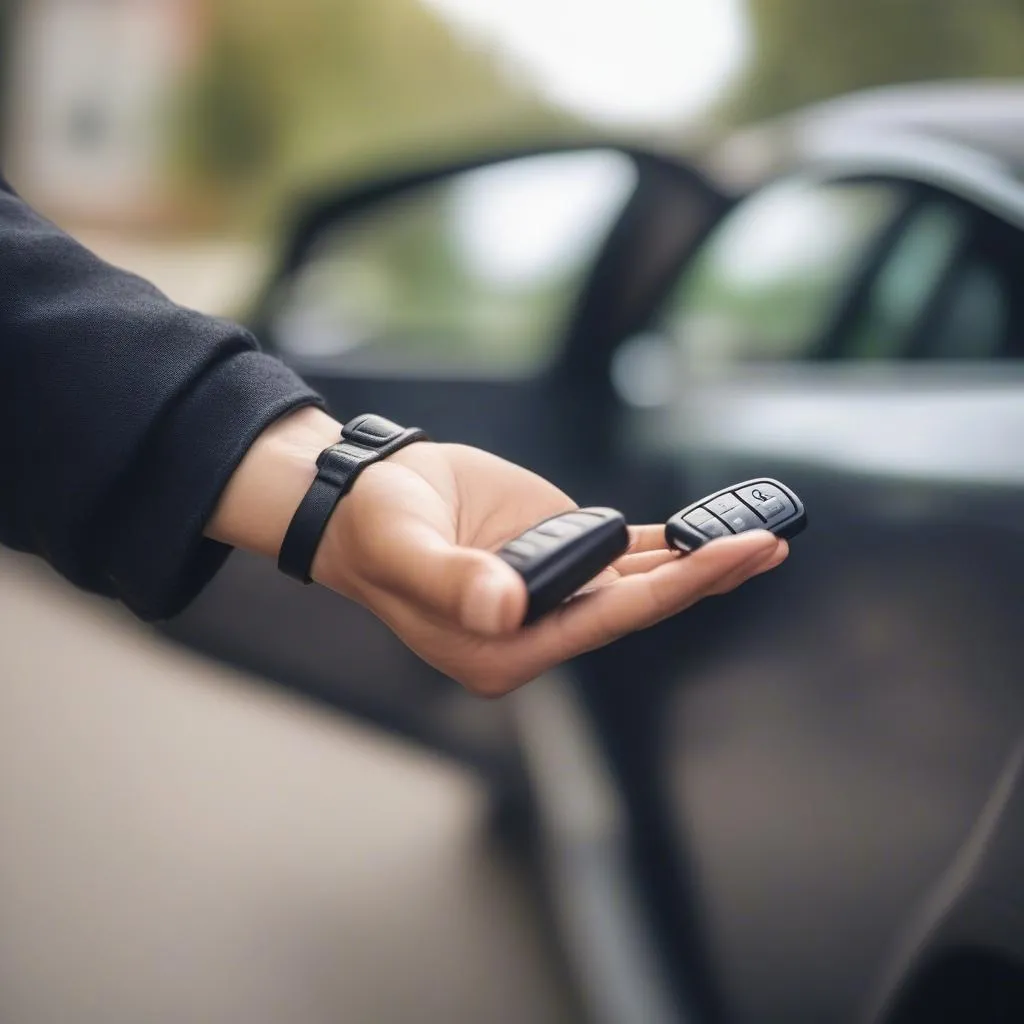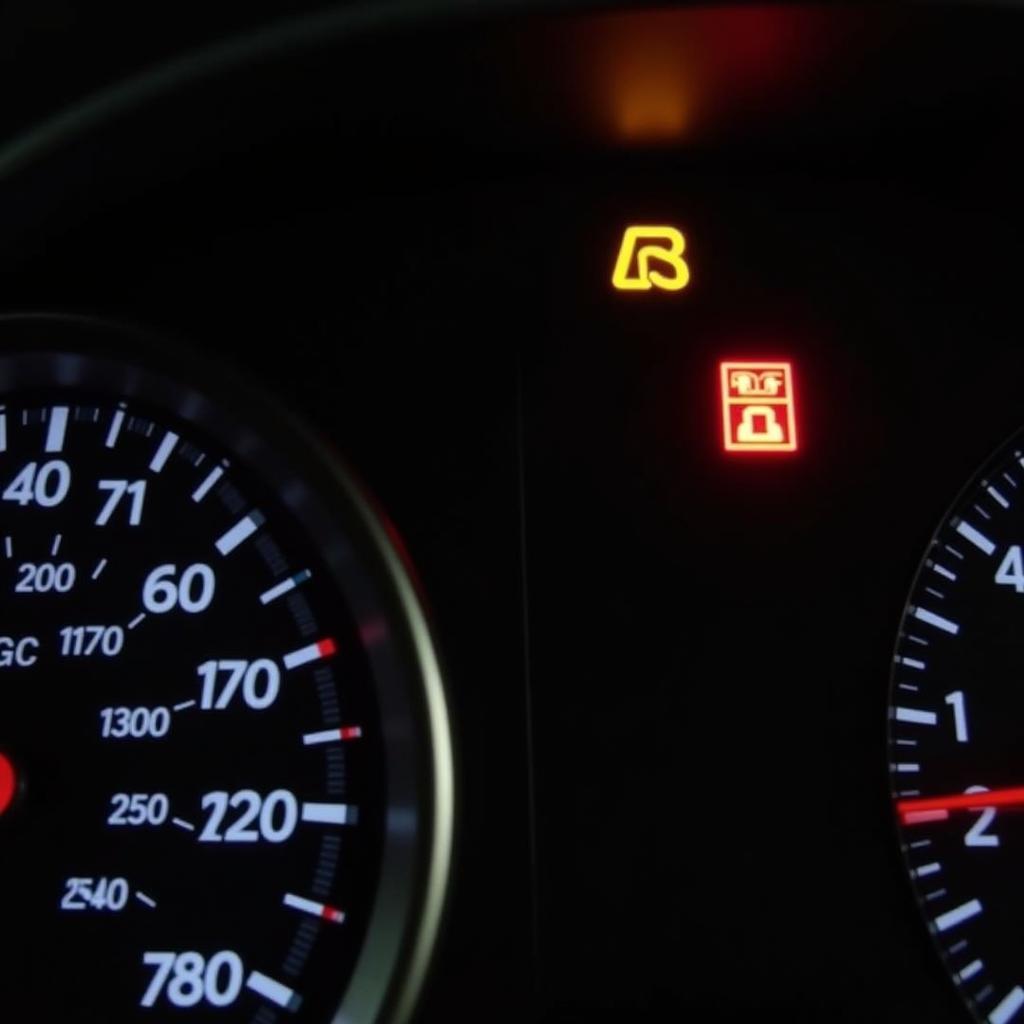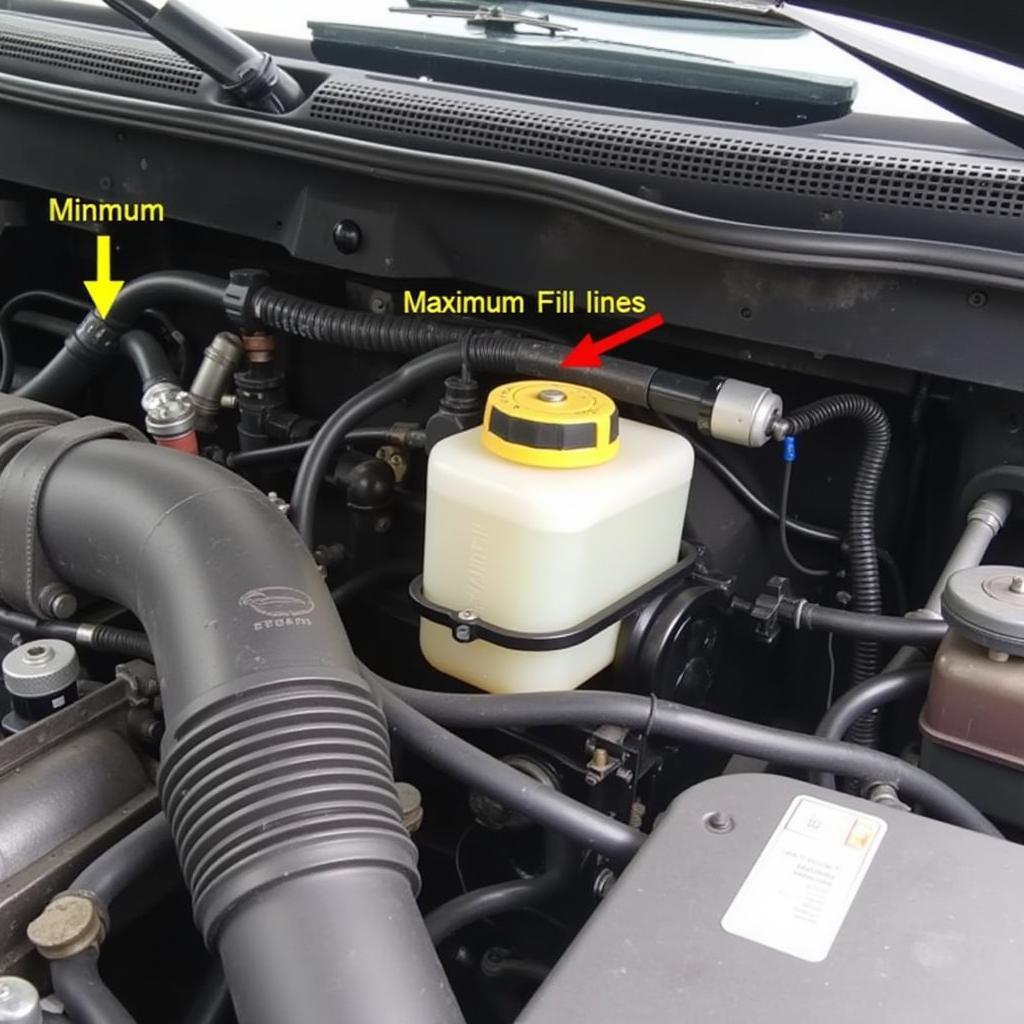A blaring car alarm is the last thing you want to deal with, especially when you’re unsure how to disarm it. If you’re struggling with a triggered anti-theft system, you’re not alone. This comprehensive guide will walk you through the common causes of car alarm triggers, how to diagnose the issue, and practical steps to silence that siren.
Understanding Your Car Alarm System
Before we dive into solutions, it’s helpful to understand what sets off your alarm. Modern vehicles are equipped with sophisticated anti-theft systems designed to deter theft. These systems use various sensors to detect unauthorized entry or suspicious activity:
- Door, Hood, and Trunk Sensors: These sensors detect when a door, hood, or trunk is forcibly opened.
- Shock Sensors: These sensors are triggered by vibrations or impacts, like someone trying to break a window.
- Motion Sensors: These sensors detect movement inside the vehicle.
When any of these sensors are tripped, the alarm system is activated, setting off the siren, flashing lights, and potentially even disabling the ignition system.
Common Causes of False Alarms
- Dead or Weak Car Battery: A low battery can disrupt the electrical signals in your car’s system, often triggering the alarm.
- Faulty Key Fob Battery: Your key fob uses a battery to send signals to your car. A dying battery can interfere with these signals and activate the alarm.
- Malfunctioning Sensors: Over time, the sensors in your car can become dirty, damaged, or misaligned, leading to false alarms.
- Accidental Trigger: Sometimes the simplest explanation is the right one. You might have accidentally pressed the panic button on your key fob or bumped the car in a way that triggered the shock sensor.
Diagnosing the Problem
- Check Your Surroundings: Is there anything obvious that might have triggered the alarm, like a low-hanging branch or a passing truck?
- Inspect Your Key Fob: If you suspect a weak fob battery, try replacing it. This is often a quick and easy fix.
- Examine Your Car Battery: Check the terminals for corrosion or loose connections. If you suspect a dead battery, try jump-starting your car.
How to Stop Your Car Alarm
- Use Your Key Fob: The most straightforward method is to use your key fob to lock and then unlock your car. This should reset the alarm system.
- Manually Unlock the Driver’s Door: Insert your key into the driver’s side door lock and turn it to unlock. This physical action can sometimes override the alarm system.
- Disconnect the Car Battery: As a last resort, you can disconnect the negative terminal of your car battery to cut power to the alarm. However, be aware that this can also reset other vehicle settings.
 How to Stop Your Car's Anti-Theft Alarm
How to Stop Your Car's Anti-Theft Alarm
When to Seek Professional Help
If these steps don’t silence the alarm or you suspect a more complex issue like a faulty sensor or wiring problem, it’s best to seek professional help.
FAQs About Car Alarms
Q: Why is my car alarm going off for no reason?
A: There are several reasons why your car alarm might be triggered without an apparent cause. A weak car battery, a dying key fob battery, or a malfunctioning sensor are among the most common culprits.
Q: How do I know if my car alarm sensor is bad?
A: If your alarm is consistently triggered by seemingly minor events, like a light breeze or a car driving by, you might have a faulty sensor. Professional diagnostic tools can pinpoint the problematic sensor.
Q: Can I disable the car alarm myself?
A: While it’s technically possible to disable some car alarm components yourself, it’s generally not recommended. Tampering with your car’s electrical system can lead to further damage and even void your warranty. If you’re having recurring issues, consult a qualified automotive electrician or mechanic.
Q: Are there advanced diagnostic tools for car alarm issues?
A: Yes, professional-grade diagnostic tools like those offered by Cardiagtech can accurately pinpoint the root cause of complex car alarm problems, including issues with sensors, wiring, and the alarm control unit itself. These tools help technicians quickly identify and resolve issues, saving you time and money.
Finding the source of your car alarm problem can be frustrating, but understanding the basics and knowing when to seek professional help can save you a lot of headache. Remember, your safety and the security of your vehicle are paramount.



